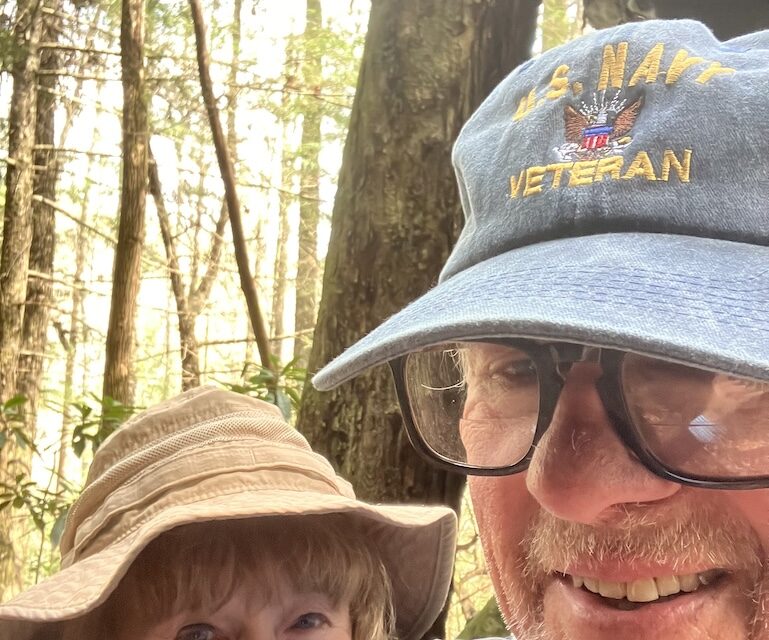Around two weeks ago Dan and I attended a luncheon featuring Pulitzer Prize winner novelist Tracey Kidder discussing his new book, Rough Sleepers. The book is about Dr. Jim O’Connell’s work with the homeless in Boston. Kidder was followed by O’Connell, and as the excellent program ended, I slipped out to the book signing table, knowing that the lines would be long and eager to have my book signed, but more importantly, eager to talk to both men.
I was especially wanting to talk to the author because when he described how he begins writing, it was very similar to how I write. We both begin without an outline but rather a stream-of-consciousness method that, with time, reveals what your mind is trying to tell you. Just as I made it to the author, a man in line broke in front of me saying he didn’t have a book to sign, he just wanted to talk. The man’s loud voice dominated the table, and I was unable to do more than thank the men for their time. The sense of privilege, the sheer rudeness of the man was breathtaking. I kept repeating to myself, “we’re all just people, we’re all just people.”
I first heard this mantra from a fellow teacher when she and I were discussing what we call in the South the “uppity” behavior of some types of students. If you are unfamiliar with this word, think privilege or elite. My friend and I were, in our separate high schools, the sponsors of what was at that time an all-girls club named Y-Teens. We started comparing notes about those types of club members, the problems they caused, and what to do about it. My friend said she would have a private conversation with the problem person and explain that we are all just people. That usually did the trick. That conversation has stuck with me through the years. We’re all just people; people trying to live our best life.
This nuanced approach to our fellow humans can lead to better outcomes, and a better understanding can lead to forgiveness. The car in front of you executes an ill-considered move? We’re all just people and that person might be late to a very important meeting. Someone is brusque with you? We’re all just people and perhaps that person just received bad news.
We are all just people but there is a limit, and that limit is if that person is causing harm. In Colleen Hoover’s bestselling book, It Ends with Us, Ryle Kincaid, an abusive husband whose abuse is escalating, says to his wife, “There’s no such thing as bad people. We’re all just people who sometimes do bad things.”
When sometimes doing bad things is something horrific or if the bad thing turns into always doing bad things, that person is not in the “just people corral.” That person is in the “avoid at all costs corral.”
Generally speaking, however, if we can set aside our difference, we might find common ground in other areas. If we find common ground, it is possible we can find understanding, and if we find understanding, it is possible that our view of that person can change. We really are all just people.
In 1991, the band Nirvana added to Chet Powers’ song “Let’s Get Together” chorus the following: “Come on people now, smile on your brother. Everybody get together, try to love one another right now.”
That man who cut in front of me? Perhaps he was due at the hospital or some other urgent appointment. If I ever see him again and he once again breaks line, it’s possible my inner high school teacher voice may rise up and I will say to him: “Come on mister now, smile on your sister. We’re all just people trying to love one another right now.” (Apologizes to Chet Powers and Nirvana)
Cindy Arp, teacher/librarian, retired from Knox County Schools. She and husband Dan live in Heiskell.


